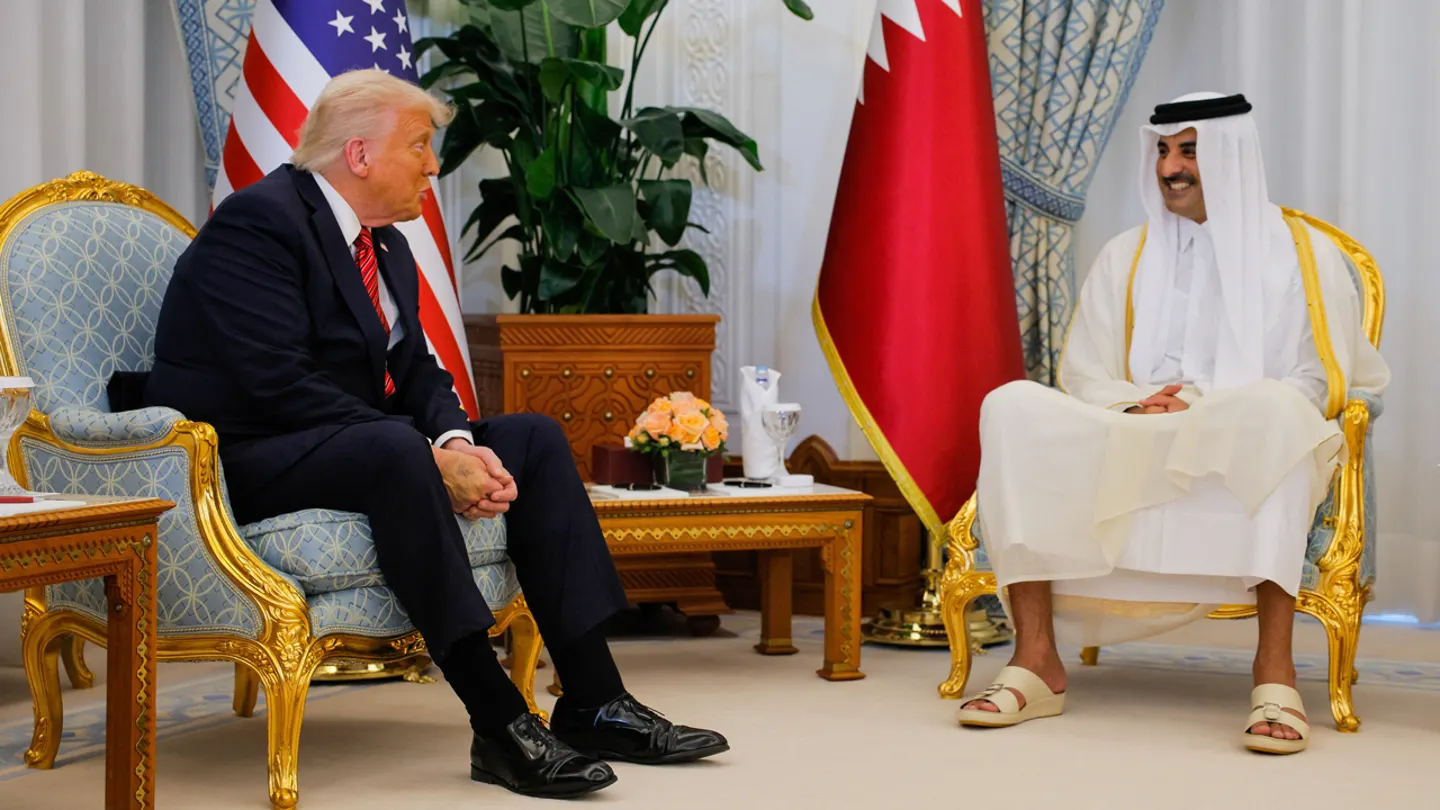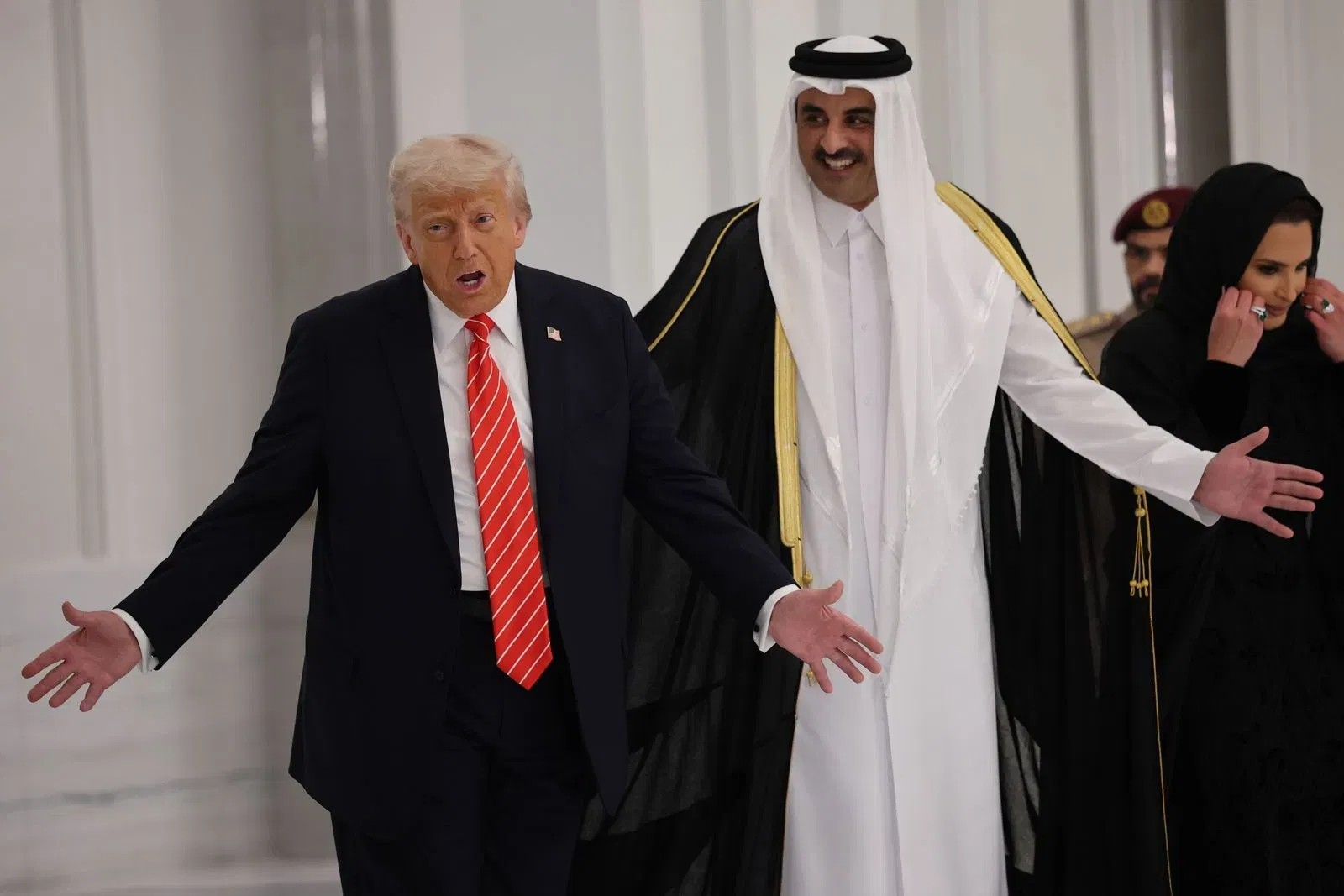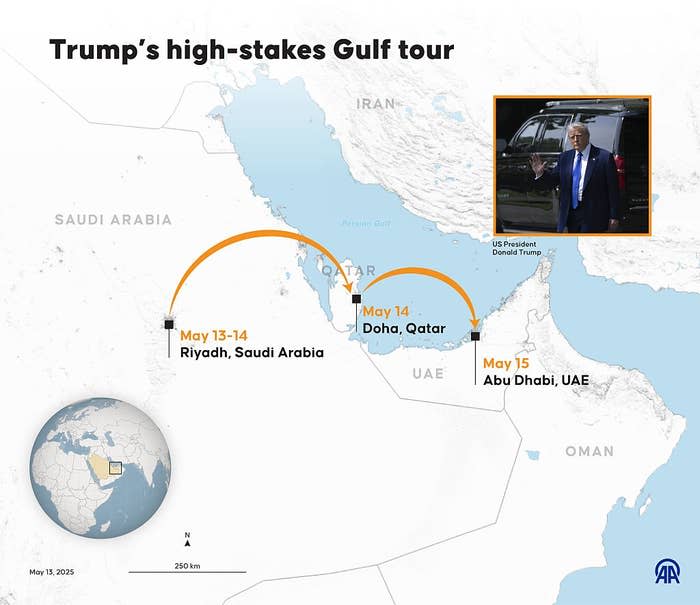Trump Signs $1.2 Trillion Economic Deal With Qatar
Daily News Article — Posted on May 15, 2025
(UPI and Grok) – President Donald Trump embarked on a four-day trip to the Middle East from May 13-16, 2025, visiting Saudi Arabia, Qatar, and the United Arab Emirates, marking his first major international trip of his second term.
The president’s trip focused heavily on securing business deals and investments, with Trump aiming to announce agreements worth over $1 trillion in areas like aviation, nuclear power, artificial intelligence, and arms sales. Key outcomes included a $600 billion Saudi investment commitment to the U.S. and a $142 billion arms package, described as the largest defense cooperation agreement in history, as well as “an economic exchange with Qatar worth at least $1.2 trillion.”
Trump met with leaders Saudi Crown Prince Mohammed bin Salman and Qatar’s Emir Sheikh Tamim bin Hamad al-Thani, emphasizing economic ties and regional stability through commerce.
The president also informally greeted Syria’s new President [and ‘former’ terrorist] Ahmad al-Sharaa in Riyadh, signaling a shift in U.S.-Syria relations, and announced plans to lift U.S. sanctions on Syria. … Discussions also touched on Iran’s nuclear program and oil prices, with Trump pushing for lower prices, potentially at odds with Saudi interests.
The White House announced Wednesday that President Trump has signed an agreement with the nation of Qatar to create “an economic exchange worth at least $1.2 trillion,” which includes a “historic sale” of Boeing aircraft and GE Aerospace engines to Qatar Airways.
In a press release, the deal is said to have secured a “landmark order” for Boeing and GE Aerospace from Qatar Airways in a $96 billion agreement to provide as many as 210 American-made Boeing 787 Dreamliner and 777X aircraft, which are powered by GE Aerospace engines.
The White House reports this to be Boeing’s largest-ever widebody order and the largest-ever order of 787s. The deal is also slated to support 154,000 American jobs annually and will total more than a million jobs in the United States as part of the production and delivery process of the aircraft involved.
The White House also said that the energy infrastructure company McDermott International has seven active projects with Qatar Energy worth $8.5 billion, and the digital solutions provider Parsons Corporation has won 30 projects of its own worth close to $97 billion.
The deal also pumps up the United States-Qatar security partnership, in which Qatar will receive state-of-the-art military hardware from the American defense company Raytheon, which secured a $1 billion contract to provide counter-drone capabilities, and is also to create engineering and manufacturing jobs in the United States.
According to the White House, the package also sees the Quantinuum quantum computing company having finalized a $1 billion agreement that will invest in both technology and job creation. Also, the defense company General Atomics locked up an almost $2 billion deal for Qatar’s acquisition of the MQ-9B remotely piloted aircraft system, which will reportedly “strengthen the U.S.-Qatar bilateral relationship and provide the Qatari Armed Forces with the most advanced multi-mission remotely piloted aircraft in the world, powered by U.S. products made in America.”
The final facet of the financial agreement included a “statement of intent” to better improve the security partnership between the United States and Qatar, worth more than $38 billion in possible investments such as burden-sharing at Al Udeid Air Base, which is a major base for the U.S. military in the region, among other future air defense and maritime security necessities.
Background
Fact Sheet: President Donald J. Trump Secures Historic $1.2 Trillion Economic Commitment in Qatar.



